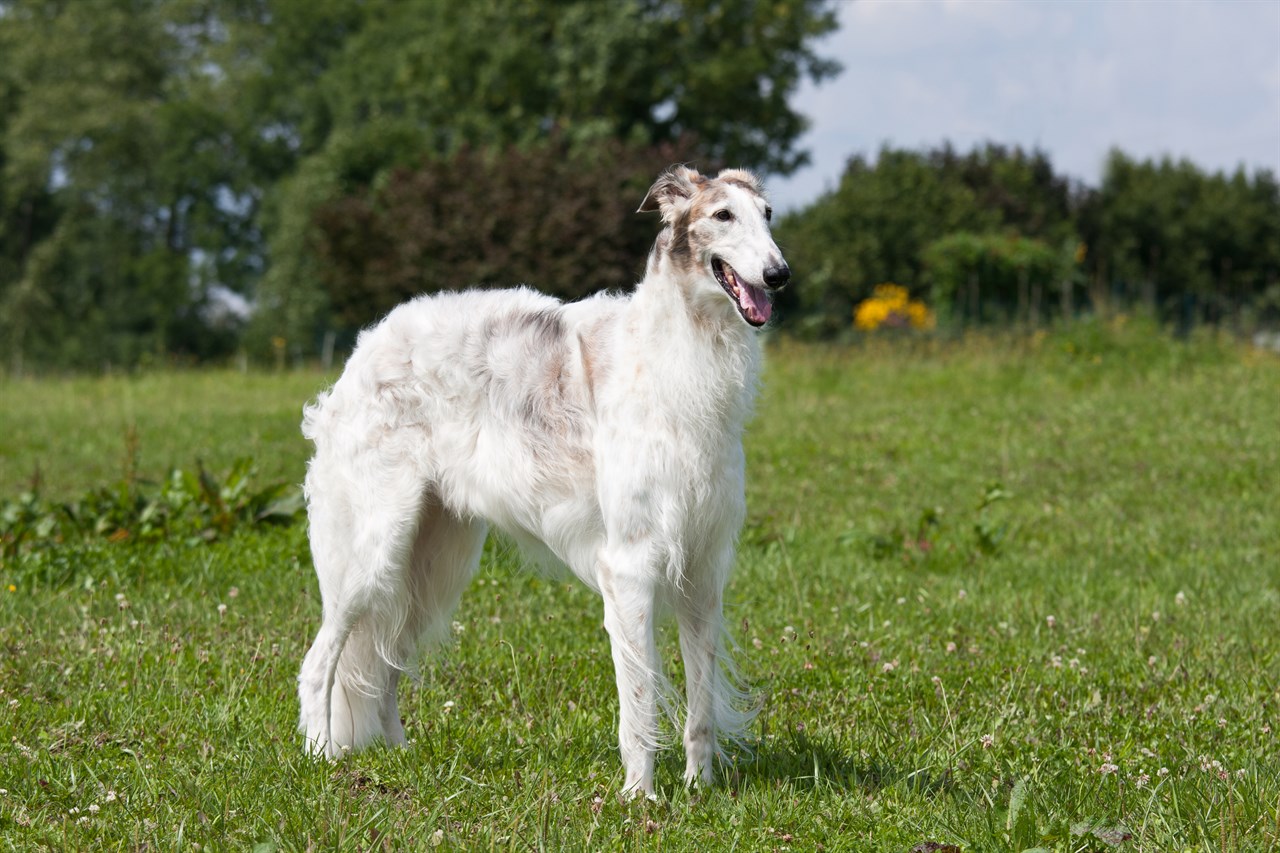Common Health Issues of the Borzoi

Borzois are generally healthy dogs with a lifespan of around 9 to 14 years. However, like all breeds, they can be prone to specific health issues. Understanding these common health concerns can help you provide proper care for your Borzoi and address potential problems promptly through regular veterinary check-ups. Common health issues in Borzois include:
Bloat (Gastric Torsion):
Bloat is a life-threatening condition that can affect deep-chested breeds like Borzois. It involves the stomach twisting on itself, trapping gas and cutting off blood flow. Symptoms include a distended abdomen, restlessness, unproductive vomiting, and excessive salivation. Immediate veterinary attention is crucial to save the dog's life.
Hip Dysplasia:
Hip dysplasia is a hereditary condition where the hip joint doesn't develop properly. It can lead to pain, lameness, and arthritis. Responsible breeders screen their breeding dogs for hip dysplasia to reduce the risk in puppies.
Osteosarcoma (Bone Cancer):
Borzois are among the breeds at higher risk of developing osteosarcoma, a malignant bone tumor. It often affects the limbs and may require amputation followed by chemotherapy.
Heart Issues:
Dilated cardiomyopathy (DCM) and other heart conditions can occur in Borzois. Regular veterinary check-ups, including cardiac evaluations, are essential for early detection and management.
Thyroid Disorders:
Hypothyroidism, an underactive thyroid, can affect Borzois. Symptoms may include weight gain, lethargy, and skin issues. Treatment typically involves lifelong medication.
Eye Conditions:
Borzois can be prone to certain eye conditions, including cataracts and progressive retinal atrophy (PRA). Regular eye exams by a veterinary ophthalmologist can help monitor and manage these issues.
Bleeding Disorders:
Some Borzois may have a predisposition to bleeding disorders, such as von Willebrand's disease. This condition can cause excessive bleeding following injuries or surgeries.
Allergies:
Like many breeds, Borzois can develop allergies, which may manifest as skin issues or gastrointestinal problems. Identifying and managing allergens in their environment or diet can help alleviate symptoms.
Borborygmi (Audible Gastrointestinal Sounds):
Borzois are known for having very audible stomach sounds. While it may not be a health issue on its own, it can sometimes be a sign of an upset stomach or dietary intolerance.
Responsible Breeding:
It's essential to choose a reputable breeder who conducts health screenings on their breeding dogs to reduce the risk of hereditary health issues in Borzoi puppies. Additionally, responsible owners should maintain regular veterinary care and monitor their Borzois for any signs of illness or discomfort.
While Borzois can be prone to certain health issues, many individuals live long and healthy lives when provided with proper care, a nutritious diet, regular exercise, and prompt attention to any health concerns.